RECORDINGSRecordings
Another recording of formation named SO-36 captures the work of three music authors. Eric Rothenstein, Vladislav Šarišský and Juraj Jakabčic and their reflection on the events of 1989 in former Czechoslovakia. The project was originally conceived as a concert for the 30th anniversary of Velvet revolution, which was also realized on this date. Composition named “Formal Division” (with its original designation “Formal Division – for Septet and Ping-pong player), also included a part for an athlete. His challenge at the premiere was the task of performing flawless service into the open grand piano, so that it is bounced and well the rotated ball made as many clean bounces as possible from the piano strings and thus revealed the Lords will – or coincidences. In some sense it initiates the idea of indeterminism, known in circles around J. Cage and his philosophical approach in some compositions.

Dante’s work Purgatory has a twofold effect on people. One of the groups deals with the images described in this opus by putting the book down, the other lets these images flow inside and reacts with them in the long term.
Marek Ormandík, as the one who belongs to the second group, is a painter. He is one of the most successful Slovakian painters of his generation. Influenced by Dante, he understood that in order to enter life to the next level, he must transform the images from Purgatory into material form on canvas.
This work in the size of more than 50 paintings and sculptures was gradually created over 4 years, during whose illustrations for Dante’s book were created as a separate project. Marek borrowed the name and published a collective work captured in a book publication, where he works freely with the topic. To make the book complete, Marek approached Oskar Rózsa, who subsequently addressed Vladislav and Marcel Buntay, (a famous drummer) to add a musical reflection to the visual form. That’s how was born the free musical reflection Purgatory on the artistic visual reflection, on which Marek worked from 2007 to 2011.
Captured in his words: “I’m flying through space, I’m losing the Earth under my feet. I am in the in-between space and I can’t see the goal.’
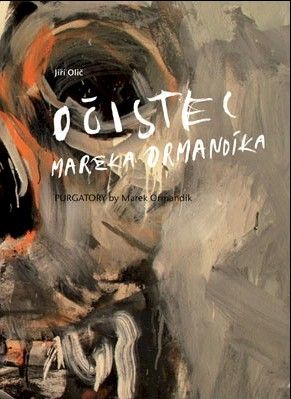
This debut album of Spectrum Quartett – CUBUS. is a music approach survey of generation of composers borned in eighties.
Four composers, four musicians, eight fellow students from Academy of Music and Performing Arts in Bratislava, brings their music with dedication to unexpectedly deceased young talented film director Marie Rumanová. This current concept came into being thanks to strong desire of band leader, violinist John Kružliak.
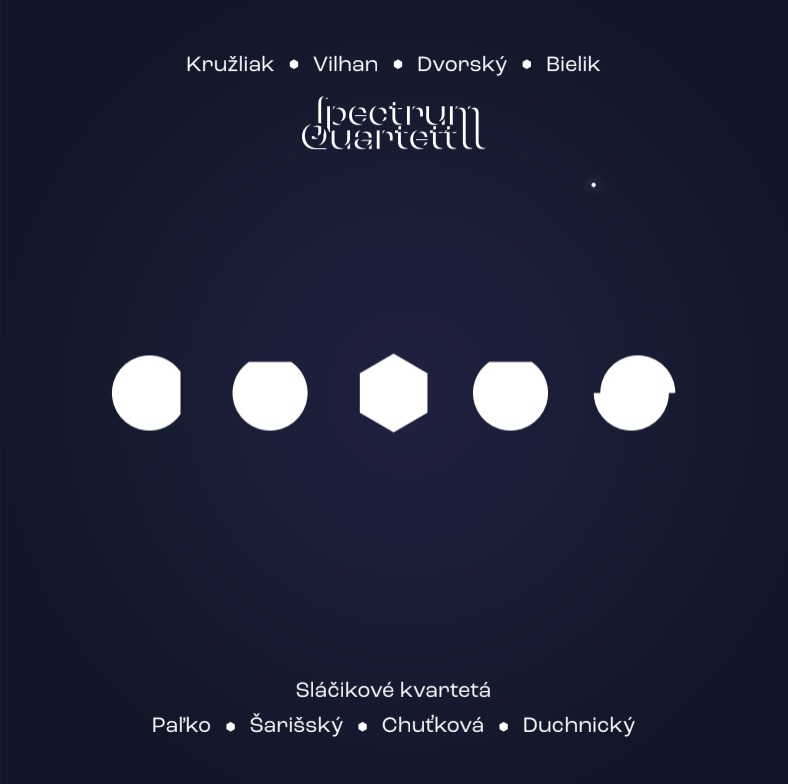
Jazz saxophonist Erik Rothenstein and his desire for playing artificial repertoire led to the creation of SO36 Ensemble, consisting of a string quartet, baryton sax, electric guitar and a piano.This unique configuration inspired a number of Slovak composers to deliver brand new original scores intended for interpretation.
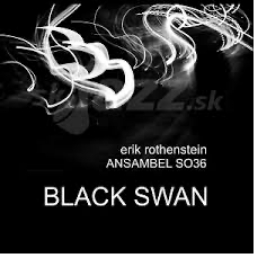
One year after the release of the the CD version of Peter and Lucy musical, Jakub managed to get significant media attention and raised enough money to organize a tribute concert for his father’s posthumous 70th birthday. This concert took place on 4th of October 2017 and was broadcast live from Music Majesty Club.
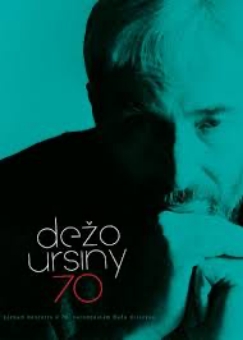
Rasťo Novotný is an example of a businessman who likes success, money and loves his family, but tends to grow restless when not creating. He abandoned his ambition to become a rock star in the wild 90s and continues making music for personal satisfaction. This album with his best songs called Soul Experiment is about love for a woman and nature. Vladislav recorded all songs on Waldorf Zarenbourg, which is his favorite instrument from 2012.

In 1998, when Vladislav started his studies at the State Conservatory Košice, Robert Šveda worked as the director of an alternative theater QuidO on a drama piece from Edward Albee – Kto sa bojí WW.
He hired Vladislav who then composed music for a string quartet.
The following year he continued working with these musical themes and he subsequently put together String Quartet no.1 in four stages, finishing in 2001. String Quartet no.2 was built in 2004 and Quartet no.5, composed especially for Moyzes Quartet in 2017. In 2020 the quartet celebrated their 45th anniversary.
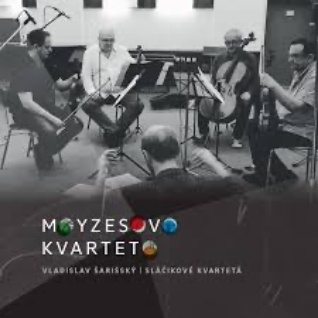
This live performance recorded in Music Majesty Club in 2012 was the last concert of a Hrana tour which swept across the country, playing songs from Marek Brezovský who died in 1994 at the age of 20 of overdose.
He was one of the leading composers of the generation of people born in the 1970’s and growing up just
after the Velvet revolution in 1989, when everone was confronted with their own dreams, possibilities and brand new values of freedom.
The decade of the wild 90s is epitomised by a popular saying: Whoever remembers the 90s did not live them.
Czechoslovakia was divided, the government had little or no control over petty crime and racketeering, oligarchy started to sink its claws everywhere and mafia was getting things dirty.
All these developments shaped the life of Marek Brezovský, a young student of composition at Bratislava’s Conservatory who grew up too soon.
He left behind a great number of classical chamber compositions, various art-rock songs and some scenic music for drama and lyrics.
His musical expression doesn’t look for compromises and categorically refuses trivial musical gestures.
One of his close friends was Oskar Rózsa, who decided to convey his message to people after Marek’s death in 1994. In 1999 he released an album of Marek’s songs called Hrana (The edge).
Ten years later, a large audience was trying to get inside DPOH (P. O. Hviezdoslav’s Theatre) where some of Marek‘s schoolmates and friends were onstage performing his music again and live.
The first part included some of his artificial works while the second part was dedicated to art-rock (Hrana).
Thanks to this concert it became clear that Marek‘s music had gained huge popularity with people across the country.
Vladislav plays all Marek’s piano parts and became an important part of this project.
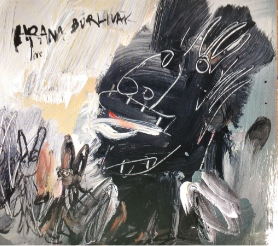
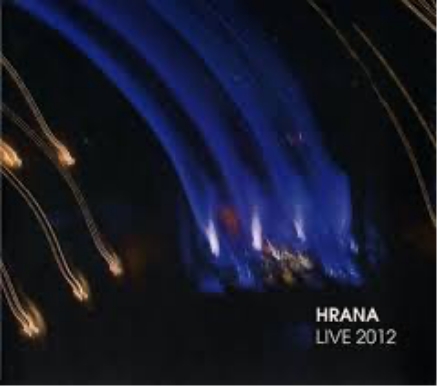
The first debut album of Talent Transport comes out in 2014, thanks to the support of Vladislav‘s brother Jaroslav. This synthetic art-fusion trio plays pure polystylistic music genre. Marián Slávka /Dr/, Filip Hittrich /bs/ and Vladislav Šarišský /ks/ had rehearsed the original compositions two years before Filip agreed to join the band.

A new album of Dorota Nvotová The sea was a result of her desire to refresh her music by teaming up with Talent Transport, creating songs about broken love and faith in a better tomorrow. Recorded in Lavagance studio.
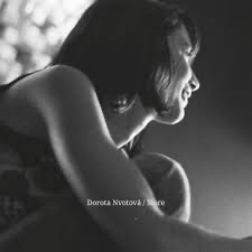
One of the most influential musicians of the early beat generation of the 60s in communist Czechoslovakia, Marián Varga and his famous Hammond playing died 6 months after a big concert tribute held for him on his 70th birthday.
Fedor Frešo /bs/, his longest-serving companion had rung Vladislav months before and they met at Galileo pub. They ordered their drinks, lit up cigarettes and Fedor said: “Listen,.. Marián is going to celebrate his 70th birthday and we will make a concert for him. He can’t play anymore, so you will play his parts on the Hammond. Everyone will be thinking that I have gone mad, that it’s a terrible idea and you can’t hold a candle to Marián, but we will still do it. Alright?”. Vladislav said: “OK, give me the materials and one week to make my mind up.”
That year in summer he performed Marián’s work onstage with Collegium Musicum (a legendary Czechoslovak art-rock band), which had been founded by Fedor Frešo and Marián in the 60s.The day before the concert it was clear that Marián was not feeling well. He returned home from a Prague hospital and fell asleep with only 30 per cent of his lungs functioning well.
Anton Popovič (a producer, musician and a conductor) who was in charge of conducting the concert asked Vladislav to do the rehearsal and that moment went down in history.It was the very first time when Collegium Musicum
played a gig without Marián Varga.
The concert was a resounding success.
On an April day hit by a violent snowstorm, Marián came in on a wheelchair and with oxygen tubes in his nose he performed his most popular song – Ommage á J.S.Bach. Then he sat in a leather sofa, lit up his Cuban cigar and drank a glass of whisky. Nearly every musician of his era came to pay a homage, with the audience giving him his last applause. After his death, a commemorative concert is held in Skalica every year on his birthday, where musicians keen on experimenting find unknown variations on his songs.

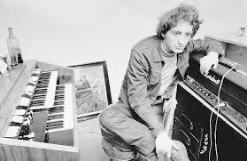

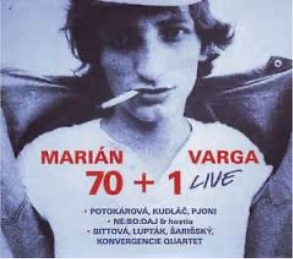
Vladislav Šarišský & Roman Harvan – Songs for Piano and Cello, are closely related to the album Európou released in 2006.
For the tour, only 2 from the original 15-strong group of musicians remained in the band.
Bezmocná Hŕstka, an iconic band existing since 1992 and having realeased 8 albums, had never given any live performance before. So the two old friends decided to play a few songs as an allusion to the original.
A couple of months later they decided to recompose all their songs and went on their very first concert tour.

A remarkable Slovak pianist Ladislav Fanzowitz first met Vladislav at the Academy and they spent nearly 200 hours playing and discussing music in Caffe del Via. They built and rehearsed Strawinsky‘s Rite of Spring for the 4 hand piano and Gerschwin‘s Rapsody in Blue.
Some years after, Fanzowitz decided to include Vladislav’s early 1st Piano sonata into his CD – Slovak Piano Sonatas.
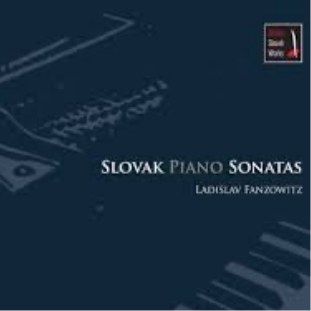
Miroslav Žbirka, a well-known slovak singer decided to release his famous evergreens in a symphonic version, with two songs arranged by Vladislav. He was called in by Adrian Kokoš, the conductor of the project, the home conductor of Radio and TV Orchestra and a children’s choir. The album was a success also because Vladislav remade a song called City sleeps which convinced him about meaningfulness of Miroslav’s musical path.

Oskar Rozsa’s Partnership Unlimited witnessed the development of Oskar’s musical path. In this album, performed on countless stages with a group of highly skilled musicians, he interprets a playlist of new compositions, arranged a created by both Oskar and Vlad. The recording is from a concert at Aréna Theater

Slovak contemporary music for accordion recorded by Milan Osadský is a spectacular insight into the Slovak accordion enviroment. With great technical skills he performed ten pieces from Slovak contemporary composers, including MeNIA – fantasy for accordion solo, composed for Milan in 2007.

Oskar Rózsa – conductor, composer, producer and a bass player released Under My Spell in 2010. The album was originally intended to be the soundtrack to a videogame called Elveon, produced in Slovakia in 2004.
Earlier that year, Vladislav met Oskar at Mlynské Nivy in Bratislava and showcased him some of his work and musical skills. Soon afterwards, they started cooperating on various projects, Elveon being the first of them.
Vlad started working as the arranger and orchestrator of the project.
6 years later, the material took a much more artificial shape and became a cantata for soprano and big orchestra.
Recorded in Rajchman TON studio, with the Bohuslava Martinů Filharmonic Orchestra, featuring Jirko Zobač, a sound engineer and a co-worker of Zdeněk Liška.

At the begining of the new millenium in Košice, a bunch of people goofing around and living the “eastern times” decided to found a band called BegBajazid quintet, noteworthy for two things:
Not only did they become the winner of U.S.Steel Talent Night, they also took in two musicians from Prešov, a rival city. The combination of two were the reasons behind their sold-out gigs and countless free-fusion-funk parties for two years straight. This period also gave way to the creation of Groovin Heads, a project with close unusual narrative, consisting of two members from Bratislava and the rest from Eastern Slovakia.

Parklife, a smoky café at Jacob’s Square in Bratislava is a place with a strange kind of peace. Not only a travel agency can be found here, also the door is hidden, making it a rather bizzare place. As you make you way downstairs to the basement, you can stay in deep music creation for as long as you wish. “Marta” /bs/ introduced Rado Chrzan to Sun (Vladislav’s nickname from the past). They found a sound with rustic, raw perspective and came up with ideas for a number of songs.
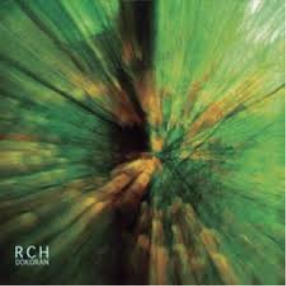
This CD was created by Marián Slávka /dr/, Filip Hittrich /bs/ and Andrej Hruška /gt./ as fruit of their labour and shared living space around the year 2009.
The album was recorded near an abandoned factory called Istrochem, on the outskirts of Bratislava. In Slovak, the surname Hruška means pear and Slávka is a female name, hence the name of the album – Woman with Fruits (Žena s ovocím).
This project became a snapshot of a generation of musicians born in Bratislava in the 1980s. Vladislav contributed with a piano part and a chromatic mouth harmonica solo. He later played a character in the music video made for the song Vrany.
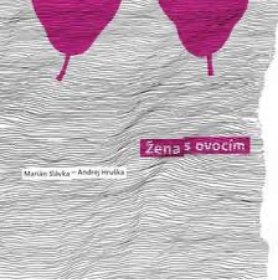
In 1998, Vladislav met Roman Harvan, a violoncellist, in Manaus, Amazonas district, Brazil, on a 40-day tour with a symphony orchestra.
Musically they met in an instant dialogue and both played some songs to each other.
8 years afterwards, they reunited again in Bratislava and his friend, Mr Maroš Hečko – also a founding member of a band called Bezmocná Hŕstka, invited Vladislav to work on a new album as the arranger and pianist. The album was released in 2006.
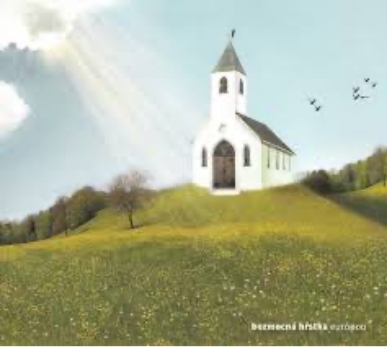
The second album of a fusion trio Talent Transport came out in 2016/?/ .
The album was recorded in TonStudio Raichman, in a picturesque village called Dolní Bojanovice, Czech republic. As for the instruments, a master piano instrument PETROF was used and a Rhodes Mk1 Suitcase, which Vladislav spent tuning on 440hz for 3 days.
It was clear after a few takes that the PETROF was tuned to 442. On the second day of the session Marián Slávka /dr/ got a call from his wife telling him that she was expecting their son. That moment is captured in the song Pre syna.
The postproduction of the album took place in Filip Hittrichs /bs/ “Štúdio pod povrchom” (Studio under the Surface).

It was in 2011 in a floating theatre (Divadlo v podpalubí) on the Danube in Bratislava, when Kamil Mikulčík (actor and musician, also called Camilleri after a character from Allesandro Barricos monodrama Novecento – Legend of 1900) proclaimed:
“I’m going to record my own songs! All they need are some finishing touches and then I’ll make them happen.”
Novecento is perfomed onstage to the present day and in 2020 it was adapted into an album.
Featuring Talent Transport as a band, recorded in the house, produced in Filip Hittrich’s Štúdio pod Povrchom (Studio under the Surface) /bs/.
Vladislav and Camilleri put their songs together – Kamil offered his voice, liberating himself from a desire which tormented him for nearly 10 years.

Sometime in 2009 in Bratislava, in Lyceum Pub, Vladislav met Kubo, the son of Dežo Ursiny – a legendary Slovak musician, founder of the 1960s Czechoslovak bigbeat. While chit-chatting over their beers, Kubo mentioned a musical, which would be based on a casette he had found amongst his father’s legacy – bearing a simple title Peter a Lucia.
On this recording, Dežo sang 16 songs with his co-worker Jaro Filip (well known Slovak actor, musician, lyricist, “man of mass occurrence”) accompanying him on the electric piano and with Mr.Daňek shouting out some chords. Kubo kept searching for answers to understand the whole story.
He found a theater (Malá Scéna) that accepted his offer and Talent Transport were asked to participate in the project.
After years of performing the musical live, Kubo and Vladislav decided to make a studio recording of this piece, so they reached out to Dorota Nvotová, actress, musician and Jaro Filip’s daughter. Thanks to this album the musical caught public attention and was performed for one whole season (2018-2019) in Theatre of Zlin (Zlínské Divadlo).

